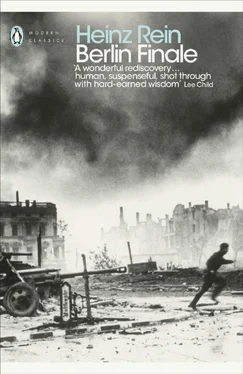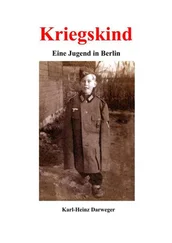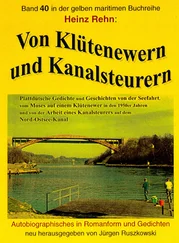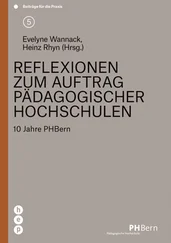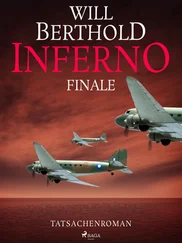The Führer says: the last battalion on the battlefield will be a German one. We must have the strength and pride to be a part of that battalion. So I appeal to your passion. Men! Soldiers! The fate of our mothers, wives and children is placed in our hands, the fate of our city and the freedom of our Eastern European home! Volkssturm men! The sun will not go down on us! Hail to our Führer!
Lassehn picks up The Reich , the issue dated 11 March.
‘The Turning-point’ by Reich Minister Dr Goebbels.
The article is too long for him, he only reads the passages marked in red:
History offers no example of the courage of a people, unbroken to the last, being overwhelmed at the last minute by raw force. At the crucial moment an inexplicable power of destiny always kicks in at the right moment, which means that the eternal laws of history can be ruled out of court.
The spiritual power of a people can be very precisely calculated in advance, but of course only by those who are capable of such a feat.
We have an advantage over the enemy that he is not able to offset. Depending on the state of things, it can fully take effect only after a certain amount of time has passed. We must wait for that time to come, however many sacrifices it takes. It will bring the definitive turning-point of the war.
So Goebbels wrote that four weeks ago. And what did the Reich Boozer-in-Chief Ley have to say on the matter? The night edition of Angriff of 17 March published his article:
‘Journey to the front line at the Rhine’ by Dr Robert Ley.
Now the Rhine has actually become the front line once again, and German men must defend it to the death. By that I do not mean that the Rhine represents Germany’s destiny. The thing that I said about Berlin still applies: we will fight before the Rhine, around the Rhine and behind the Rhine. We fight as long as we have a breath within us, wherever it might be. Spaces, rivers, cities and provinces have nothing to do with it.
Beneath the thundering guns of Meiderich, amidst bombs and shells, our work continues. The chimneys smoke, the hoisting cable makes its familiar hum, the tracks roll and people become accustomed to artillery fire. They are used to so much suffering, they have experienced so much pattern-bombing and now they have had enough of the shells as well. At any rate: they are still working. Under the heaviest artillery fire, so that the soldiers have guns to fight with. Anyone who is not otherwise required and has a free minute digs trenches, builds anti-tank barriers or exercises with the Volkssturm. A glorious people, these Germans on Rhine and Ruhr – all of them, workers, engineers and works managers, form a single community of fate and defence. I am proud to be one of them.
I arrived in Cologne on the right bank of the Rhine as Gauleiter Grohé was the last to cross over in the rubber dinghy.
Anyone who thought they would find a broken man was mistaken. On the contrary! Full of fanaticism and wild hatred as before, when we both began the battle for Cologne, he said to me: ‘Now that we have encountered those cowardly dogs over there I am more convinced than ever of our victory.’ Now I knew that the old fanatic and National Socialist Josef Grohé, whose fists flew dozens of times in brawls of various degrees of severity, and acquitted himself excellently, would give the Americans hell to pay today.
We will reconquer it all for a second time. Not a single square metre of German soil, no person of German blood will be left to them. They will have to make reparations for all the crimes they have committed against Germany. They will be given nothing, and nothing will be forgotten, an eye for an eye, a tooth for a tooth!
Lassehn, repelled, lays the newspapers aside. He feels and senses it, yes, he knows he didn’t do what he did just to preserve his life, to save himself from the general chaos of downfall, but that there is also something else that impels him with irresistible force, an incomprehensible energy that feeds on a source that lies deep within him, which he does not know. Isn’t there something from which one might draw inspiration, for which heart and soul might blaze? He cannot think of an idea that carries his life and forces its way towards a goal, he knows only rejection of the idea that they had tried to force on him with pathos and brute force, he knows only revulsion because he sees blood dripping on the well-tended hands and shiny boots of that idea’s supporters, he knows only resignation because he has entered the machinery that crushes like an insect anyone who even tries to break out of the formation.
There must be something worth living for, but he doesn’t know what it is, it has been withheld from him or counterfeited, lies and slander have been sown so deeply within him that the weeds of prejudice have overgrown his capacity for thought.
Lassehn looks in the mirror again and runs his right forefinger along the contours of his face, it runs gently over chin, cheeks, lips, nose, forehead, ears, and that calm contact of his own finger makes him feel strangely good, as if it is instilling breath within himself again, as if that touch has re-established contact with life.
‘No,’ he says again and shakes his head, a faint smile curls his pale, bloodless lips. He isn’t dead yet, he’s only seemingly dead, he has had life breathed back into him through the mysterious power of an unknown idea. The time that lies between the beginning of a flight and the start of a new light is no longer a dead, empty gap in the deepest trough of his life. It is like a musical pause after a painfully fading coda, a quiet bar in which energy collects into new chords, which leads from the border of deadly resignation into a defiant will to live. He knows that he will now fight for knowledge, but it is not yet clear to him where he will find it and who will convey it to him, but right now that does not concern him.
His thoughts leaped directly to Klose, and now his faintly curving lips really turn into a smile that wrinkles his nose and draws two distinct lines towards his chin.
Klose is in fact the only person in Lassehn’s field of vision who was not washed over or torn down by the wave of National Socialism, from whom all the high-sounding speeches and refined propaganda tricks slid off ineffectually, who has been corrupted by nothing. Lassehn doesn’t know that there are still such people, since he hasn’t met one, neither does he know where Klose’s resilience comes from and why his capacity for resistance is so unbroken, but he guesses that the roots of that power must reach back into a time when he, the college student Joachim Lassehn, was not yet consciously thinking. He knows nothing of that time, or only what the teachers, the youth leaders, the propaganda officers, the newspapers and the radio broadcasts let him know, and that was…
His chain of thought is suddenly interrupted. All at once the anti-aircraft guns suddenly bark and hammer away, a mighty roar is slung into the silence, the fine, singing notes of the planes drifting above them and the wail of the falling bombs as they hurtle to the ground. The ground vibrates, the house shakes to its foundations, the blast forces its way through all the cracks and chalk-dust trickles from the walls.
For a few minutes Lassehn listens to that infernal concert, then he picks his coat up from the floor and lies back down on the sofa. Events outside do not concern him, he pushes his ski-cap over his eyes and pulls his coat up around his neck.
A few moments later he is fast asleep.
14 April, 11.00 p.m.
When Lassehn wakes up again, he doesn’t know whether he has been asleep for only a few minutes or for many hours. A cloud of exhaustion still weighs down on him. He wants to abandon himself to sleep once more, when a voice reaches his ear. It is not Klose’s voice, that slightly droning, rather rough voice with its Berlin accent, it is a cultured, harsh, matter-of-fact, rather mannered voice, the voice of a practised and experienced speaker.
Читать дальше
